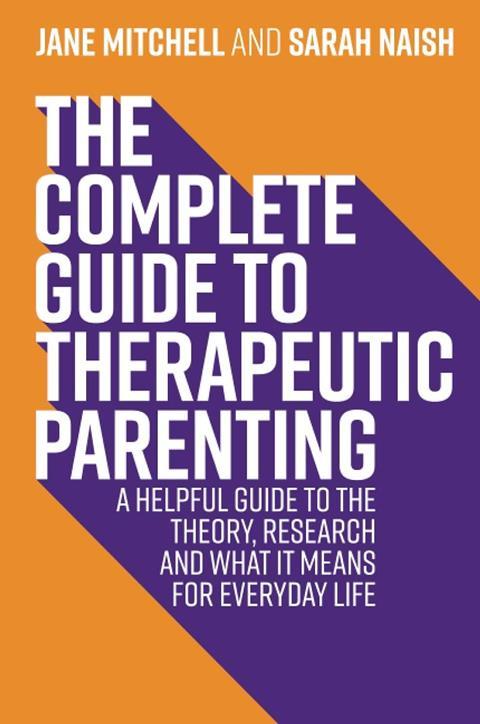Claire Stewart finds a book that can help parents and children with past trauma find a way ahead

This book is part of a series of parenting books all focused on the topic of therapeutic parenting. Other books in the series are:
· Therapeutic Parenting Essentials: Moving From Trauma to Trust
· A Quick Guide to Therapeutic Parenting: A Visual Introduction
· The A to Z of Therapeutic Parenting Professional Companion: Tools for Proactive Practice
· The A to Z of Survival Strategies for Therapeutic Parents: From Chaos to Cake
· Therapeutic Parenting Jumbo Cards
The Complete Guide to Therapeutic Parenting is for parents and professionals who care for traumatised children. It is essentially a parenting book but, backed up by the latest research, it could be a great addition to the professional’s tool kit.
It is rare to find a book that makes you cry and laugh in equal measure, but this book manages both. It is a book which should come with a warning. It will break your heart into a thousand pieces. It’s saving grace is that it meticulously guides you to pick up each piece and put your heart back together again so that it is a warmer, fuller place than before. And in doing so, you learn to help your child do the same.
Parenting is arguably the most exhilarating yet potentially devastating calling a person can have for their life. Add trauma, particularly trauma you were not present to witness, as is the case with fostered and adopted children, and that parenting is on a whole new level. The highs may be higher, but the lows can be excruciatingly painful, and very, very lonely.
This book addresses everything you are likely to experience in a professional, research-based way. But this is science with heart: a practical application of the research, giving a smorgasbord of suggestions which will help you to feel less alone and, most importantly, give you hope. It is peppered throughout with analogies and metaphors which simplify the complexities of trauma-based behaviours, making therapeutic parenting accessible for all.
It is not, however, an iron clad method to produce the child of your dreams. I suspect such a method does not exist. Children, their trauma and their own personal reactions to such trauma are far too diverse to give a one-answer-fits-all approach. If you’re looking for an easy answer, this is not the book for you. If you are looking to understand the pain your child is in and from where the resulting behaviour comes, this could be perfect.
One last thought before I end. Whilst not Christian, it struck me how similar therapeutic parenting is to the way God parents us. That small quiet voice, insistent without being harsh. The generous ‘all-in’ love poured out over each of us, regardless of how low we fall. The absence of guilt. And most importantly, the soft place to fall, amongst all the jagged edges life tosses at each and every one of us.
Therapeutic parenting is about loving when it is hard to do so, being consistent and unchangeable when the ugly face of trauma threatens to overwhelm both you and your child. Reading this book is like having a close friend nearby cheering you on so that you feel you can keep on keeping on. I highly recommend this book for anyone who is looking after children with trauma.
































